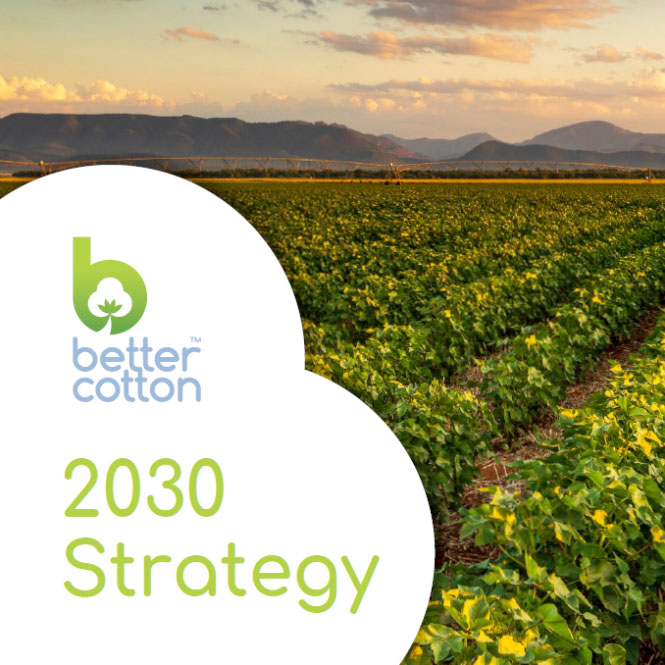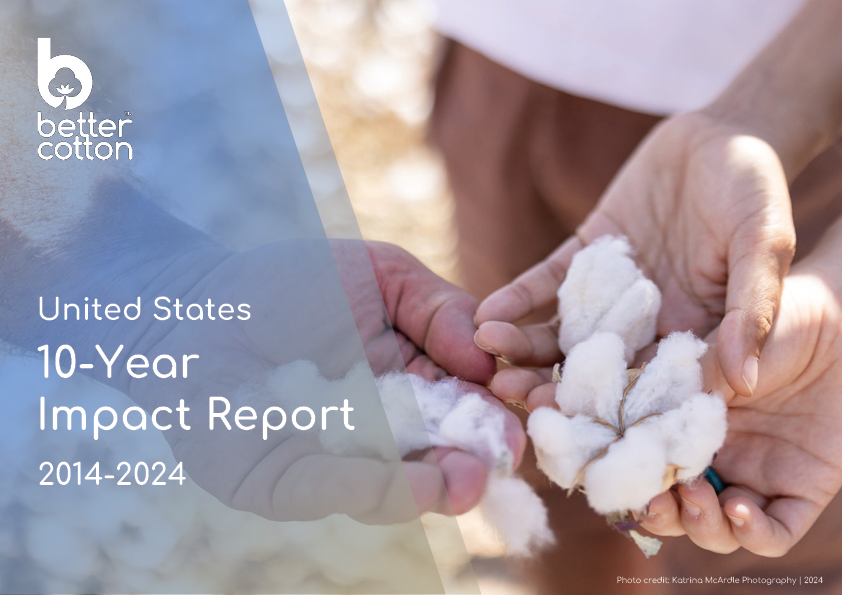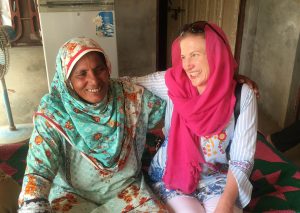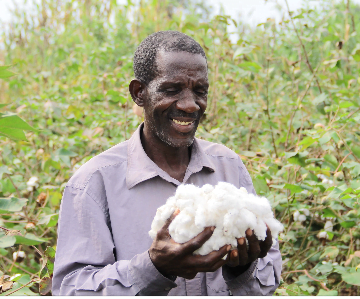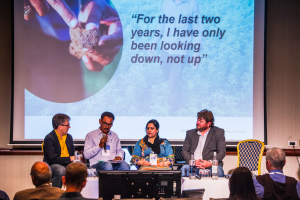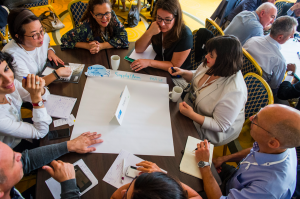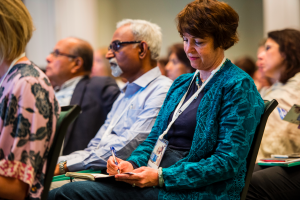Learning First-Hand from Better Cotton Farmers in Pakistan: Q&A with Better Cotton’s Communications Coordinator
When BCI staff member Morgan Ferrar from the global communications team visited Pakistan, she saw how families’ lives are improving since cotton farmers have joined the Better Cotton Initiative (BCI) programme, and how it can be the start of a very different future for communities.
What was the reason for your visit to Pakistan?
Supporting farmers is at the heart of our work and is the reason for BCI’s existence. In Pakistan, there are more than 90,000 licensed BCI Farmers. I visited two Punjabi districts, Muzaffargarh and Rahim Yar Khan, to meet some of these farmers and hear about their experiences and perspectives directly. I wanted to understand the unique challenges that these farmers face and learn about how they are adopting more sustainable agricultural practices to overcome these challenges.
There was a particular family that I was curious to meet. BCI Farmer Jam Muhammad Saleem, from rural village Jhangar Marha in Muzaffargarh, Punjab, was struggling to make ends meet. He saw no choice but for his 12-year-old son to leave school to work alongside him and his wife to tend their farm. But when Saleem started participating in BCI training sessions in 2017, organised by our field-level partner WWF-Pakistan, his outlook completely changed. This is a powerful example of how BCI works to eliminate child labour. I spent time with Saleem and his family and I asked them if they would like to share their story with the world. Stay tuned!
What are the challenges in cotton production in Pakistan that you learnt about?
One of the main challenges that Pakistani cotton farmers have experienced recently is extreme weather conditions caused by climate change. Specifically, low rainfall and rain falling at irregular times of the year. Low rainfall can lead to drought conditions and insufficient water for healthy growth. Dehydrated cotton plants, pushed beyond their capacity to cope with dry conditions, can shed their cotton bolls before the harvest, depleting farmers’ yields. Meanwhile, a lack of water can also bring new insect problems, as crop-destroying insects move from less hardy host plants to attack cotton instead.
In some instances, these challenges can foment farmers’ reluctance to allowing their children to attend school, fearing that without their child’s help on the farm, their crops will surely fail. To overcome resistance to children’s education, we seek to address and secure children’s rights to education, health, development and well-being through a series of structured training sessions that take place each season. Farmers learn how farm work impacts on children’s health and wellbeing, why children should be kept away from pesticides and hazardous tasks, and about the value of education as well as national labour laws.
Tell me about some of the farmers that you met and the experiences that they shared with you?
First, I met Muhammad Mustafa, who was so full of energy and was eager to tell me about the improvements in his life. Through the BCI programme, he had learnt new techniques to farm cotton in a more sustainable way by reducing his pesticide usage. This has saved Mustafa money that he would otherwise be using on expensive chemical pesticides, and because of this, he and his family have been able to move into a more spacious house. However, what Mustafa was most proud of was that because of his reduced spending on inputs, he can even now afford for his eldest daughter to attend college.
I then met Mustafa’s childhood friend, Shahid Mehmood, who is also a cotton farmer. Mehmood shared similar perspectives to Mustafa’s; his profit had increased by reducing the amount he spent on inputs, and because of this he could afford to send his children to school. Another BCI Farmer I met, Afzal Faisal, had enough additional income to create a new revenue stream on the side of cotton production; supplying solar panels to other farmers in the community.
The farmers I met in Pakistan are undeniably proud to be cotton farmers – that they can continue to do what they love, while increasing their yields and profits, using the additional income to create new revenue streams and send their children to school enriched their lives more than I could’ve possibly imagined. It was on this day that I truly gained first-hand perspective about the impact BCI is having at field-level in Pakistan.
What are the next steps?
We are incredibly proud of BCI Farmers like Saleem, Mustafa and Mehmood, who are committed to producing cotton in a more environmentally and socially sustainable way. In every country where Better Cotton is grown, there are many more successful BCI Farmers who have experiences and perspectives to share. At BCI, we are committed to amplifying these stories to a global audience to keep the momentum going and expand the BCI movement. This helps more farmers gain access to knowledge and training, building their capacity to implement sustainable agricultural practices. You can learn more about the experiences of BCI Farmers here.
Morgan Ferrar with BCI Farmer Nasreem Bibi. Rahim Yar Khan, Punjab, Pakistan. 2018.
Read more